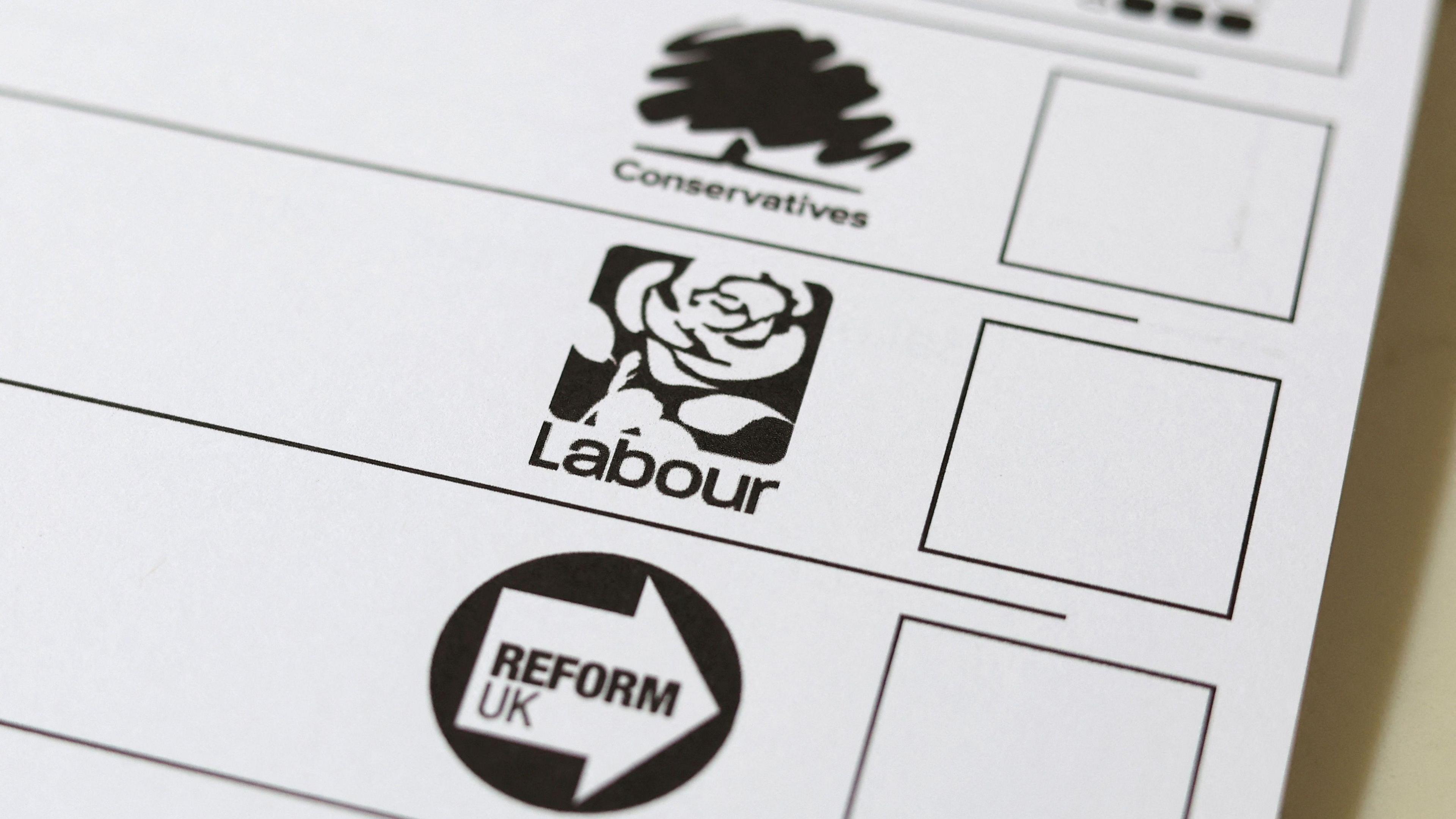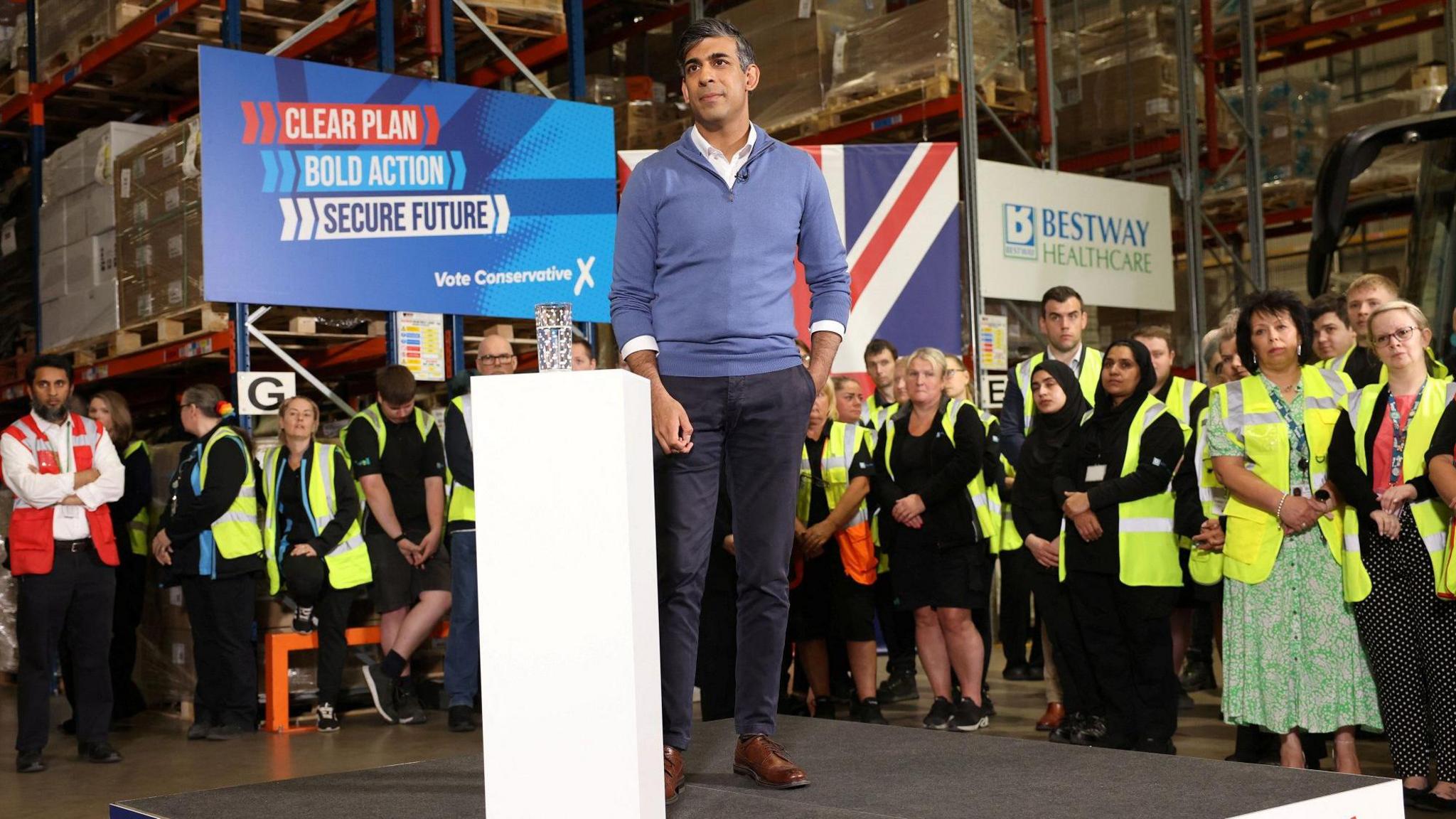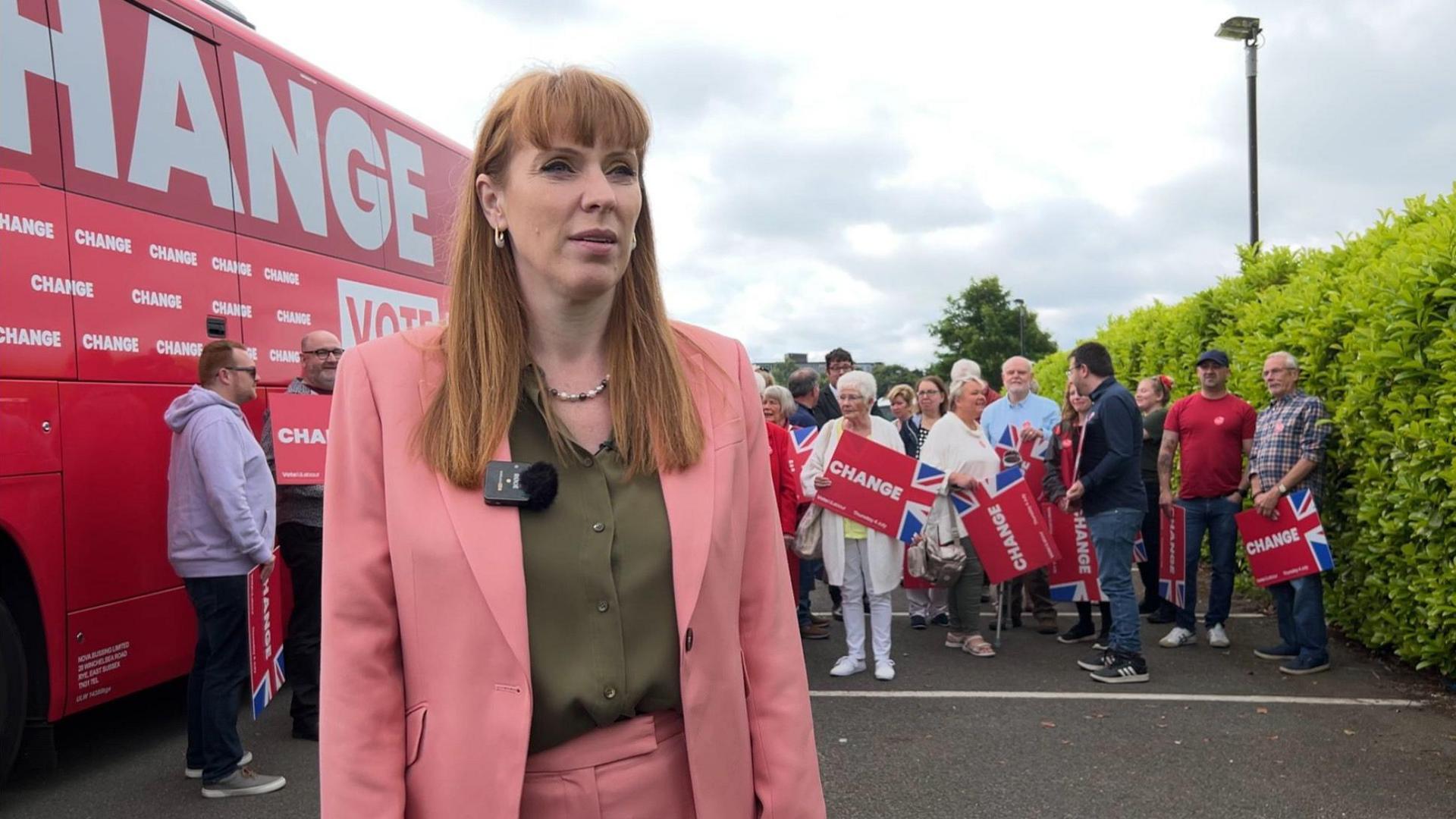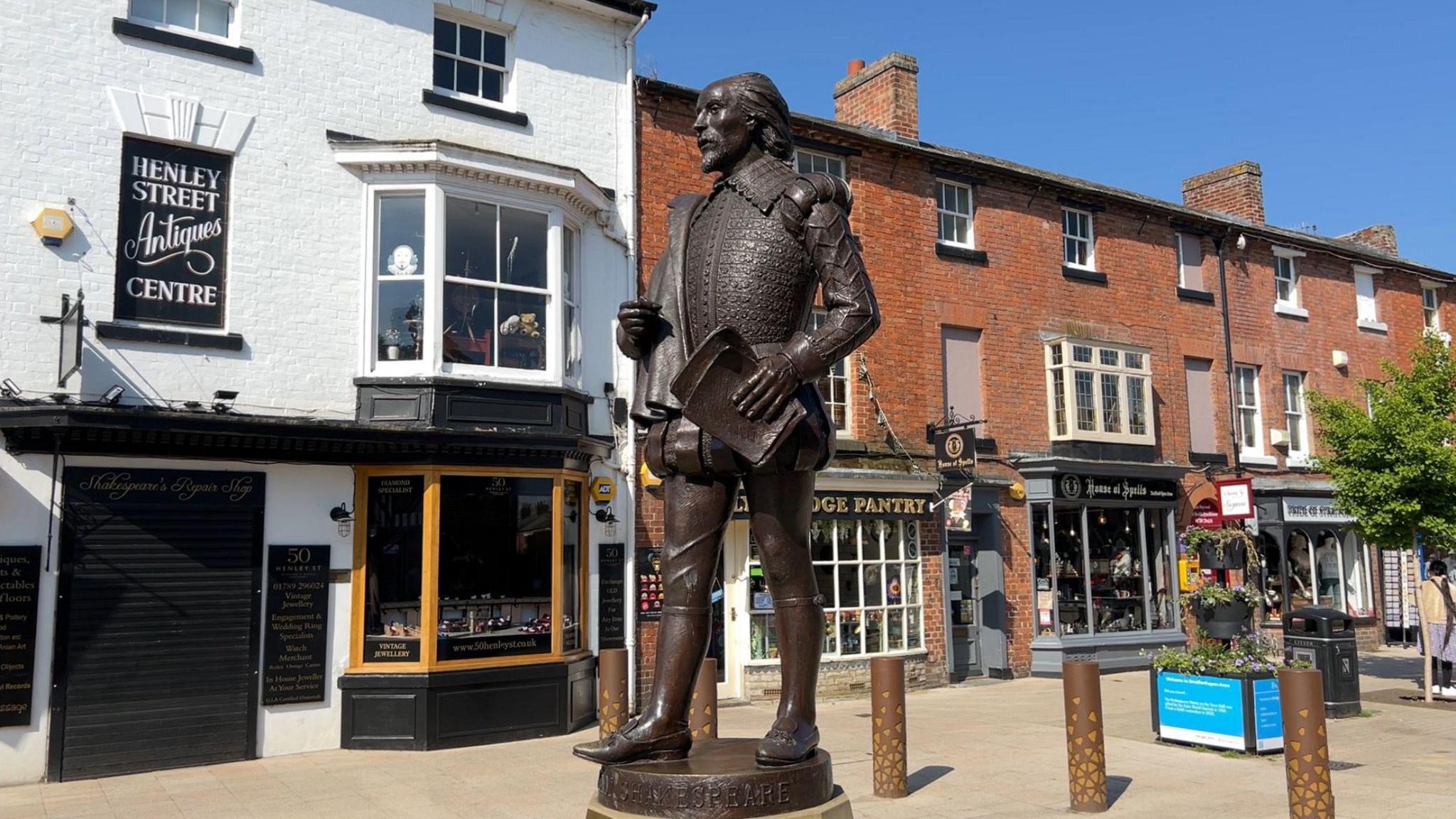Election takeaways from Coventry and Warwickshire

Voters are going to the polls on 4 July
- Published
After five weeks of canvassing, debates, and manifesto launches, polling day is almost upon us.
The general election means nine MPs will be picked by voters across Coventry and Warwickshire.
So as voters make up their minds, what has the campaign told us in this part of the country?
1) The Conservatives are on the defensive
Senior Tories - such as former cabinet minister Priti Patel and Home Secretary James Cleverly - have been out campaigning in Nuneaton.
But they were fairly low-profile visits, with none of the pomp seen in previous campaigns.
For example, Boris Johnson delivered his first big speech of the general election campaign in 2019, while David Cameron spoke in Nuneaton days before voters went to the polls in 2015.
Prime Minister Rishi Sunak did stop off at a cricket club in Nuneaton on the Conservative Party battle bus in the last week of the campaign.
But BBC analysis shows this time, the Conservatives have fought a highly defensive campaign, with Mr Sunak making trips to extremely safe Tory seats.

Rishi Sunak has visited the West Midlands but not Coventry or Warwickshire
2) Labour is targeting Nuneaton
In contrast, Labour’s high command has been more visible.
Labour leader Sir Kier Starmer chose to promote one of his party’s childcare policies at a primary school in Nuneaton, and deputy leader Angela Rayner rolled into the town on the battle bus.
Ms Rayner told me a Labour victory would be symbolic in Nuneaton, a bellwether which has backed the winning party nationally in every general election since 1997.
Labour is also directing activists in Coventry and Warwickshire to Nuneaton, where a 14.55% swing is needed to take the seat from the Conservatives.
David Cameron said he knew the Tories would win overall in 2015 when he heard they’d taken Nuneaton. Will that be the case for Sir Keir in 2024?

Labour deputy leader Angela Rayner visited Nuneaton on the Labour battle bus
3) Lib Dems are eyeing up Stratford
Famously the birthplace of William Shakespeare, Stratford-on-Avon has been a Conservative heartland for decades.
Not known for its electoral drama, the seat had been held by the former chancellor Nadhim Zahawi since 2010, before he decided to stand down ahead of the general election.
But now YouGov polling suggests, external the stage could be set for a Liberal Democrat victory on 4 July.
That would be a midsummer night’s dream for the Lib Dems, in what is an affluent area, with a high proportion of homeowners and people over 65.
During his final battle bus campaign tour, Lib Dem leader Sir Ed Davey gave a stump speech in the constituency, telling activists a vote for his party would give people in Stratford a fair deal.

Stratford-on-Avon is the constituency of William Shakespeare
4) Smaller parties increase candidates
One notable feature of this general election is the record number of candidates standing, as this article explains.
It suggests a fragmentation of the traditional two-party system dominated by Labour and the Conservatives.
In Coventry and Warwickshire, there are 60 candidates, a increase from the 44 on ballot papers in 2019.
The increase primarily comes from Reform UK ending its promise not to stand against Conservatives, the Green Party fielding more candidates and the Workers Party of Britain entering its first general election.
5) The cost of living and housing came up a lot
Throughout the campaign, the BBC has been highlighting election issues and stories submitted through Your Voice, Your Vote.
In the messages we received from people in Coventry and Warwickshire, much of the focus was on the cost of living, housing and the NHS.
We featured some of these messages in our BBC CWR general election debate (which you can watch here), including one from Catherine Knight.
She said: “Hospital staff are approaching charities to try to find money for equipment they need. Waiting lists for cancer biopsies are far too long.”
One couple told us they had three adult children still living at home in their 30s.
They said: “Private rent went way beyond what they could afford. Something needs to be done with people buying up all the properties to rent.”
Now it’s over to voters on 4 July to decide which candidates and parties they think have the best ideas to deal with these issues.